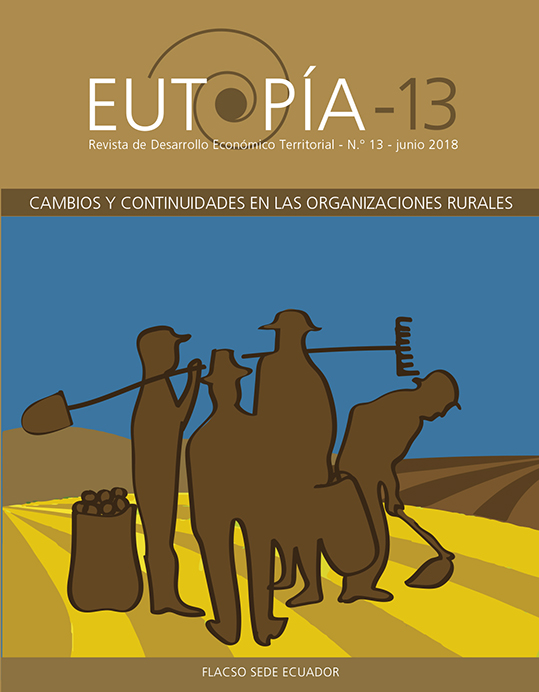Continuity and renewal in the collective action of family cattle farmers of the northwest coast of Uruguay
Abstract
Uruguayan cattle raising has provided the image of independent cattle farmers, isolated in scattered exploitations, without organizations or groups. However, reality shows that it is common for family cattle farmers to be integrated into one or several forms of groups of diverse nature. The transformations that have occurred in recent years have challenged left Governments to find the right tools to apply policies and differential support to family cattle farmers, which allows them to improve their competitiveness and sustainability. One of the strategies is the promotion of associative processes as a transversal axis. This study identifies and classifies existing forms of collectives in the northwest coast of the country, analyzing the processes through which individuals are involved in collective action. The identification of four types of collective action is the result of the review of secondary sources and the interviews conducted. This reveals that, for family cattle farmers, moving from individual to collective action strengthens the processes of building social capital, generating a favorable environment for those involved to improve their economic and social conditions, and even modify their organizational "weakness" situation.
Downloads
Copyright (c) 2018 Virginia Courdin Máximo

This work is licensed under a Creative Commons Attribution-NonCommercial 4.0 International License.

Eutopía, Revista de Desarrollo Económico Territorial, operates under Creative Commons Attribution-No Derivative Work 3.0 unported (CC BY-ND 3.0).
The authors who publish in Eutopía accept these terms:
You are free to share / copy and redistribute the material in any medium or format for any purpose, including commercial. Therefore, authors retain the copyright and cede to the journal the right of the first publication (CC by-ND 3.0), which allows third parties the redistribution, commercial or noncommercial, of what is published as long as the article circulates without changes.
The following conditions exist for the authors:
Recognition - you must recognize the authorship, provide a link to the license and indicate whether changes have been made. You can do this in any way reasonable, but not in a way that suggest that has the support of the licensor or receives it by the use he makes.
Without Derivative Work – If you remixed, transform or create a work from the original material, you cannot broadcast the modified material.
For more details, visit the page of Creative Commons (CC).


























